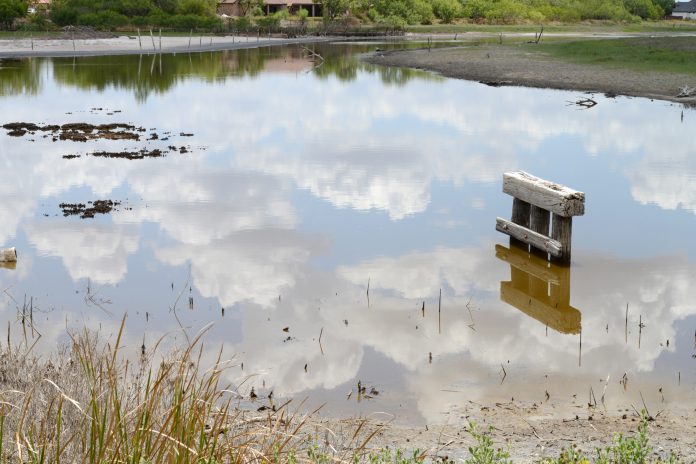
|
Only have a minute? Listen instead
Getting your Trinity Audio player ready...
|
The United States is one step closer to withholding millions in aid dollars from Mexico as that country continues to flout a binational water sharing treaty that’s critical to the Rio Grande Valley’s water supply.
On Wednesday, the U.S. House Appropriations Committee approved an effort by a bipartisan, bicameral group of Rio Grande Valley lawmakers to withhold funding from Mexico until it makes good on a 1944 water sharing treaty with the United States.
The treaty obligates Mexico to deliver some 1.75 million acre-feet of water every five years from six Mexican tributaries that feed the Rio Grande. However, four years into the current cycle, Mexico has delivered only about a year’s worth of water, even as the two international reservoirs that supply the Valley and the northern Mexican states of Tamaulipas and Nuevo Leon with water have fallen to historically low levels.
The scarcity of water led to the demise of the Valley’s sugarcane industry, which in February announced it was permanently ceasing operations after a 51-year legacy here.
And already, another iconic facet of Valley agriculture — the citrus industry — is also on the brink of failure as farmers uproot dozens of dead and dying trees from their orchards.
The worsening crisis has long prompted earnest entreaties from local leaders that something be done.
Earlier this year, a coalition of federal lawmakers took up the cause, calling for a first-of-its-kind financial sanction against Mexico for its continued non-compliance.
That effort was led by Texas Sens. John Cornyn and Ted Cruz, both Republicans, as well as all three of the Valley’s House representatives, and several more who represent other parts of the state.
On Wednesday, U.S. Rep. Henry Cuellar, D-Laredo, announced that their combined efforts had achieved their first legislative success.
The proposal to withhold funding from the fiscal year 2025 State, Foreign Operations, and Related Programs, or SFOPS, appropriations bill, had successfully passed the House Appropriations Committee, Cuellar, a senior committee member, said in a news release on Wednesday.
“Water is life, and water deliveries from Mexico are essential for South Texas communities to operate and grow,” Cuellar stated in the news release.
“As a member of Congress, it is my job to ensure communities on the border have an adequate, reliable water supply,” he further stated.
The Valley’s freshman lawmaker, U.S. Rep. Monica De La Cruz, R-McAllen, also celebrated the language’s inclusion in the House appropriations bill, which will be voted on by the full House later this year.
“This bill sends a clear message: if the Mexican government thinks it can starve us of our water and put our farmers out of business, they are sorely mistaken,” De La Cruz stated in a news release Wednesday.
“Withholding funding will highlight to everyday Mexicans their government’s failure to adhere to binding international agreements,” she further stated.
The legislative measure calls for withholding up to 15% of SFOPs funding from Mexico, though monies used to combat fentanyl trafficking are specifically excluded.
That equates to about $7.6 million, according to what U.S. Rep. Vicente Gonzalez, D-Brownsville, told The Monitor earlier this year.
However Cornyn, Texas’ senior senator, said that amount may turn out to be higher.
Mexico is one of the top receivers of American foreign aid, according to the Office of Foreign Assistance.
In 2022, the country received more than $231 million in aid, and another $149 million in 2023.
As of June, the combined American storage of water held at Amistad and Falcon international reservoirs stood at just 18.76%, according to data published by the International Boundary and Water Commission.
The IBWC is the federal agency responsible for maintaining data on the reservoirs, and enforcing the water sharing treaty with Mexico.
The 18.76% shown in the June 1 water ownership report represents the lowest volume of water since recordkeeping began.




